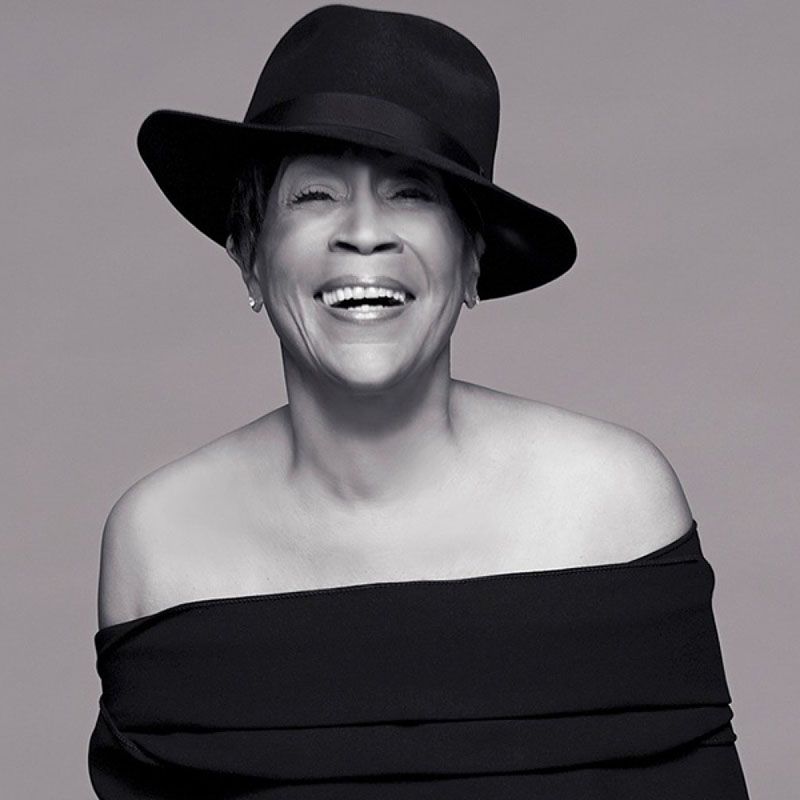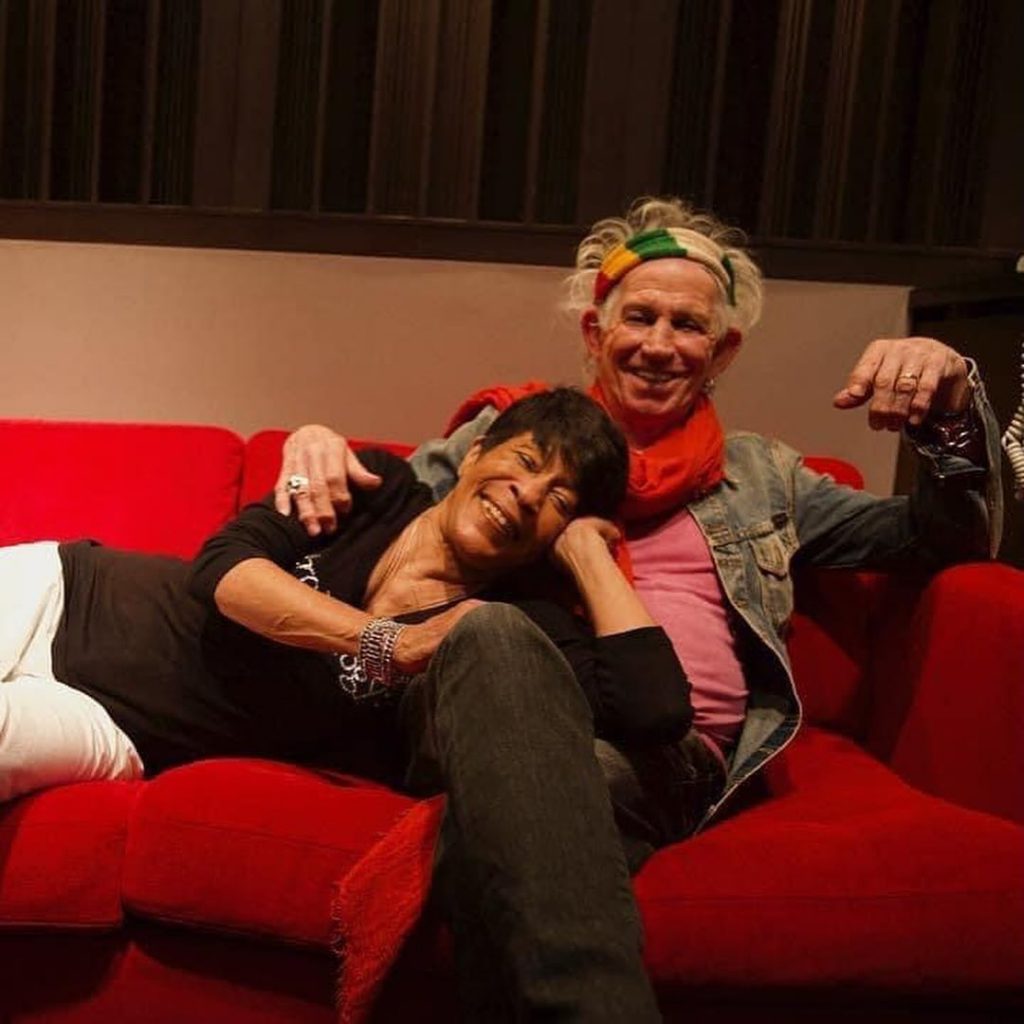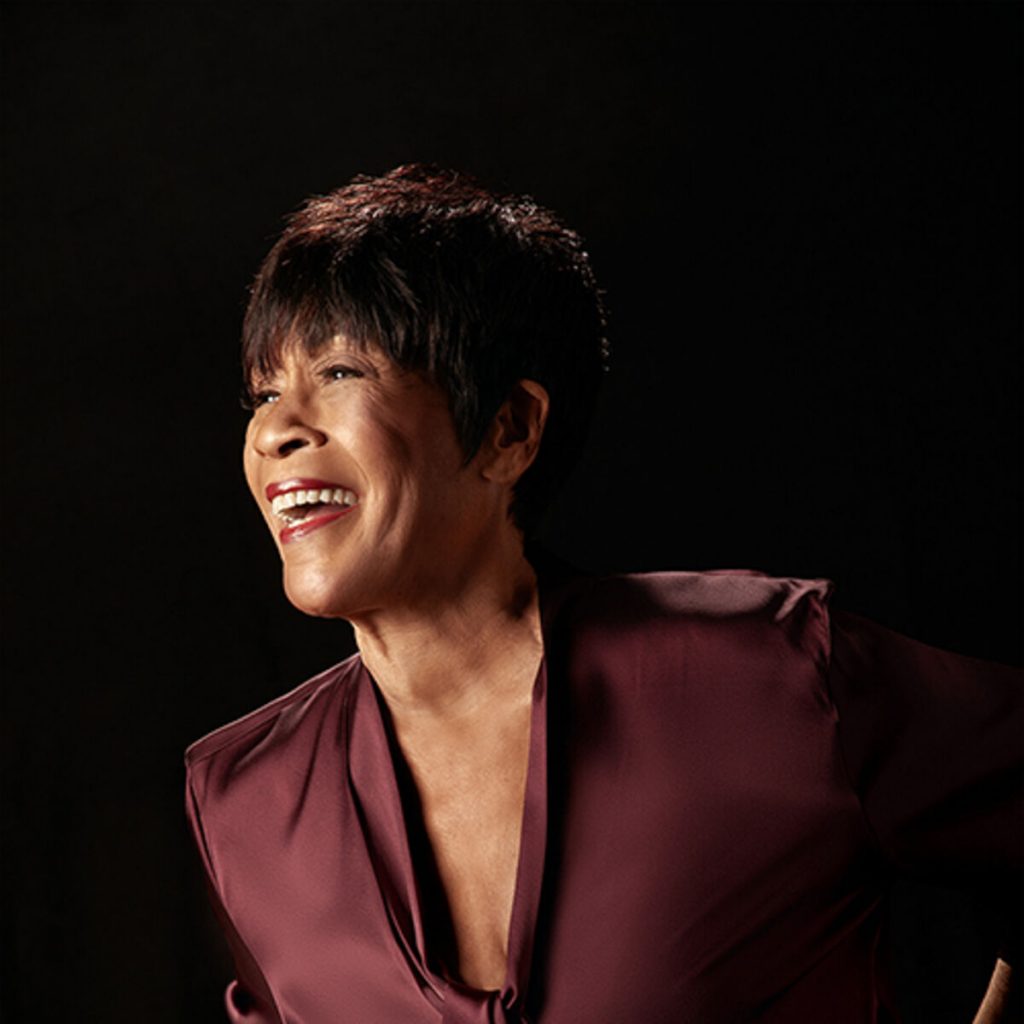She starts where Aretha Franklin and The Supremes leave off. Add to that an ability to nearly wipe the Stones off the stage with one song and you have an artist who by all that’s holy and just should be an arena superstar.
At 79 years old, Bettye LaVette knows all that, and frankly it pisses her off.
“Oh, I’m pissed because I’m still hustling. I’m definitely pissed, and it brings me grief. Many of the people who like me – REALLY like me – have listened to me for the whole 63 years.”
The question in her mind, and in mine, too, is why is she still playing coffeehouses and bars. She calls this stage in her life her fifth career. “I consider this my fifth career because every time something started, it started with a nationally selling record. It was a new production. It started with great hope. And with a new production.
“And then, poof! You start all over again.”
Bettye’s first recording was “My Man – He’s a Lovin’ Man” in 1962. It was a smash hit, but the intervening six decades have been a roller coaster of ups and downs to the point that she calls her current national tour her fifth career.
“I have been on every major label except Capitol. Everybody has had the opportunity to become familiar with me and like me. Everybody that hears me says they think I’m wonderful, but people are still coming up to me saying, ‘I’ve been a music fan for 50 years and I’ve never heard of you.’ That’s disturbing.”
She started her recent set at Caffe Lena with a number that had the intensity of a third encore. In 2023 she won her seventh Grammy Nomination for Best Contemporary Blues Album for LaVette! She spent time within the last month opening for the Stones in Chicago. And her 13-song set at Caffe Lena took her sold-out crowd through the roof.
She told everyone, “I was singing in ’62 before you were born.” She mixed originals with songs by artists as disparate as Nina Simone’s “I Hold No Grudge,” Kenny Rogers’ “Just Dropped In (To See What Condition My Condition Was In),” Tom Waits’ “Heart of Gold,” The Beatles’ “Eleanor Rigby,” and an Elton John song with the lyric: “I know what it’s like to have a graveyard as a friend.”
She was introduced by Randell, her grandson and addressed us all like family, but a family of choice not biological. Most significantly, she doesn’t edit herself. Her real name is Betty Jo Haskins. She was born on January 29, 1946 in Muskegon, Michigan, not Detroit. Her parents sold corn liquor out of their home.
“You couldn’t stop by a bar after work if you were black. You stopped by my house. They all ran tabs until payday on Friday, and they all paid. There was no fighting and, if you were there, you had to be there with your wife or by yourself. They all worked together every day in the factory there in Muskegon making parts for the factories in Detroit. Not for Ford; Ford always made their own shit, but for Chrysler and General Motors.”
Despite her seven Grammy nominations, she gets compared to Aretha Franklin as if she were the store brand of soul. “When I tell people I had a record on the charts before Aretha Franklin, they’re like, ‘what?’ I didn’t have the success that my contemporaries did in Detroit, although I grew up in Detroit and knew them personally for a very long time. Until they became rich and famous anyway.
“Smokey Robinson and Barry Gordy may be millionaires – I know exactly how they came up. They knew exactly how I came up. I know many of the same people. I know exactly how they feel about everything, about religion, about music, about women, about everything because they know it the same way that I do.”
She looks back on her beginning. “When I got pregnant, it wasn’t about being pregnant. It was about being married. So, when I got married at 15 years old that made everything ok, but I was the first person in my family to bring home $100 a day. That was a whole week’s pay then. That was it!”

Don’t tell her she’s doing a cover when she’s not doing an original. She does interpretations. “My mother spent more days taking care of me than I ever did of her because I ended up doing concerts in Oakland and Detroit. She was an unusual lady. And a wonderful lady. She taught me how to cuss and how to drink,” she chuckles.
“The first time I walked on stage I’d never been to an audition. It just happened that I was in the right place at the wrong time. My mother was ecstatic. We’d never had anything or known anybody. She was thrilled. Nobody had had anything before. When I was three before we moved to Detroit, we had a jukebox and I knew every song on it. My father would put me on top of the jukebox, and I would play in my diaper and roll my stomach up and down.
“I never had to have another career. I (always) had somebody who loved me and wanted me to be successful and was willing to pay all my bills and take care of me until something happened to me.”
Her first album, Child of the Seventies, was recorded in 1972 and featured the Muscle Shoals Rhythm Section. Atco chose not to issue it. In 1978 she had a disco hit on West End Records called “Doin’ The Best That I Can.” In 1982 Motown sent her to Nashville to record her first released LP Tell Me A Lie. The first single from that recording “Right In The Middle (of Falling In Love)” hit the R&B Top 40. Also in the 1970s she did a six-year run in the Broadway smash Bubbling Brown Sugar appearing alongside Cab Calloway.
A Woman Like Me won the W.C. Handy Award for Comeback Blues Album of the Year in 2003 and marked the onset of her career revival. In 2005: She signed with ANTI- Records for I’ve Got My Own Hell to Raise, a collection of songs from female writers. Her next album, The Scene of The Crime, debuted at number one on Billboard‘s Top Blues Albums chart in 2008 and was nominated for Best Contemporary Blues Album at the 2008 Grammy Awards.
She performed The Who’s “Love Reign O’er Me” at the Kennedy Center Honors in 2008 and sang “A Change Is Gonna Come” with Bon Jovi at President Obama’s inaugural celebration in 2009. She re-invented classic songs by The Beatles, Stones, Animals and Pink Floyd on Interpretations: The British Rock Songbook in 2010, and performed at “The Beatles Celebration” at the Hollywood Bowl in Los Angeles.
In 2018 she released an album of Bob Dylan songs, Things Have Changed. She was inducted into the Blues Hall of Fame in 2020 and took home her sixth nomination for her LP Blackbird, for “Best Contemporary Blues Album. She was named Best Soul Blues Female Artist at the Blues Music Awards, her third Blues Music Awards win.
When she lost the 2021 Contemporary Blues Album Grammy to Fantastic Negrito in 2021, she posted on Facebook: “Those of you who know me know I’m pissed. But they also know and I want all of you to know how very grateful I am for where I am at this point in my career. It has been a long haul but, some of the greatest things and people in the world have happened to me. I love you all, and I thank you all for….(some of you for MANY years) your faith and support. Gonna smoke me a joint, drink me a glass of champagne, and go back to work on the next album.”
In 2023 she released her most recent album, LaVette, and won the Legacy of Americana Lifetime Achievement Award at the American Music Honors proclaiming “Whatever you give me, I deserve.” She also earned her seventh Grammy Nomination for Best Contemporary Blues Album.
Earlier this year she sang one song opening for The Rolling Stones in Chicago at Soldier Field. During her ‘fifth career,’ she has recorded The Stones “Salt of the Earth” (2010) and “Complicated” (2015). Keith Richards plays guitar on her versions of “It Ain’t Me Babe” (2018) and “Political World” (2018). During our interview she reminded me that Keith Richards had played on her Bob Dylan album.

We all have ups and downs in our life. I’m a white, only child from an upper middle-class family, but like Bettye, I’ve had some downs including my tour of Vietnam where I first wrote about music from a war zone writing to grunts in the field.
“I wouldn’t be talking about music if somebody was shooting at me,” Bettye said, “but how brave it was of you to keep people informed when you were being shot at. I love it. I love it. I wouldn’t be brave enough to sing where somebody was shooting at me. You would think on the poor side of town I’d be used to gunshots, but I’m not.”


